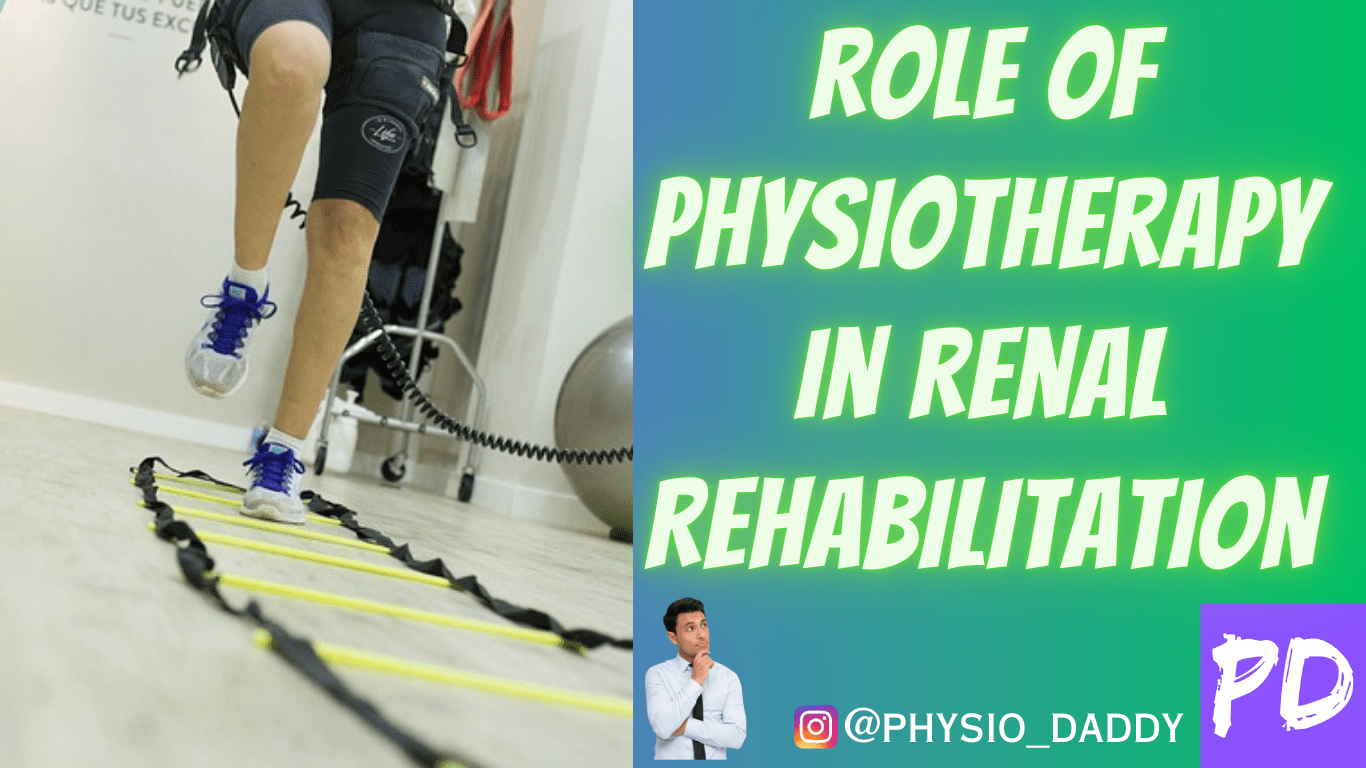Renal rehabilitation is a crucial aspect of the recovery process for individuals with kidney-related health issues. It encompasses a holistic approach that aims to enhance the overall well-being of patients suffering from renal conditions.
While various medical interventions play a vital role in renal rehabilitation, physiotherapy has emerged as an indispensable element in promoting a patient’s recovery and quality of life.
In this blog post, we will delve into the significant role that physiotherapy plays in renal rehabilitation and how it contributes to improved outcomes for patients with kidney-related disorders.
What is Renal Rehabilitation?

Renal rehabilitation is a multifaceted process that aims to optimize the physical, mental, and emotional health of patients dealing with kidney disease.
It focuses on providing comprehensive care and support, enhancing physical function, and managing comorbidities to enhance the patient’s overall well-being.
The primary goal of renal rehabilitation is to improve patients’ quality of life and reduce the risk of complications, such as cardiovascular problems and musculoskeletal issues.
Role of Physiotherapy in Renal Rehabilitation
Physiotherapy, also known as physical therapy, is a specialized healthcare discipline that involves using physical techniques to restore and maintain mobility, function, and well-being.

When it comes to renal rehabilitation, physiotherapy plays a pivotal role in addressing the unique challenges faced by kidney patients.
Here are some key contributions of physiotherapy in renal rehabilitation:
1. Muscle Strength and Conditioning
Patients with kidney disease often experience muscle weakness and loss of strength due to extended periods of inactivity, medication side effects, or electrolyte imbalances. Physiotherapists design personalized exercise programs to help these patients regain muscle strength, improve endurance, and enhance physical function.
2. Pain Management
Chronic pain is a common problem for individuals undergoing renal rehabilitation. Physiotherapists employ various pain-relief techniques, including manual therapy and therapeutic exercises, to alleviate pain and enhance the patient’s comfort levels.
3. Balance and Coordination
Kidney disease can affect a patient’s balance and coordination, leading to an increased risk of falls and injuries. Physiotherapy interventions that focus on balance training and coordination exercises can significantly reduce these risks, promoting greater independence and safety.
4. Cardiovascular Health
Kidney patients are at an increased risk of cardiovascular complications. Physiotherapy interventions, such as aerobic exercises and cardiovascular conditioning, can help improve heart health, manage blood pressure, and reduce the risk of heart-related issues.
5. Respiratory Health
Kidney disease can impact lung function and respiratory health. Physiotherapists incorporate respiratory exercises to strengthen the lungs, enhance lung capacity, and improve breathing patterns.
6. Edema Management
Edema, or fluid retention, is a prevalent issue in kidney patients. Physiotherapists use techniques like manual lymphatic drainage and compression therapy to manage edema and improve overall lymphatic circulation.
7. Psychological Support
Dealing with a chronic kidney condition can take a toll on a patient’s mental health. Physiotherapists often act as empathetic listeners, providing emotional support and encouragement throughout the rehabilitation process.
Benefits of Physiotherapy in Renal Rehabilitation

The inclusion of physiotherapy in renal rehabilitation offers a wide range of benefits for patients, including:
1. Enhanced Physical Function
Physiotherapy interventions help patients regain mobility, strength, and flexibility, enabling them to carry out daily activities with greater ease.
2. Improved Quality of Life
By addressing physical limitations, managing pain, and promoting independence, physiotherapy contributes to an overall improvement in the patient’s quality of life.
3. Disease Management
Physiotherapy can aid in managing kidney disease complications, such as hypertension and cardiovascular problems, reducing the risk of further health issues.
4. Individualized Care
Physiotherapists develop personalized treatment plans tailored to each patient’s specific needs, ensuring that rehabilitation is optimized for their unique circumstances.
5. Long-Term Health Maintenance
Physiotherapy equips patients with the knowledge and tools to maintain their health in the long run, minimizing the risk of relapse and future complications.
Conclusion
Physiotherapy plays an indispensable role in renal rehabilitation, providing comprehensive care to individuals with kidney-related health issues. From enhancing physical function to managing pain, improving cardiovascular health, and offering psychological support, physiotherapy interventions offer numerous benefits for patients undergoing renal rehabilitation. By incorporating physiotherapy into renal rehabilitation programs, healthcare professionals can significantly enhance the outcomes and quality of life for individuals with kidney disease, helping them regain independence and enjoy a better overall well-being.


